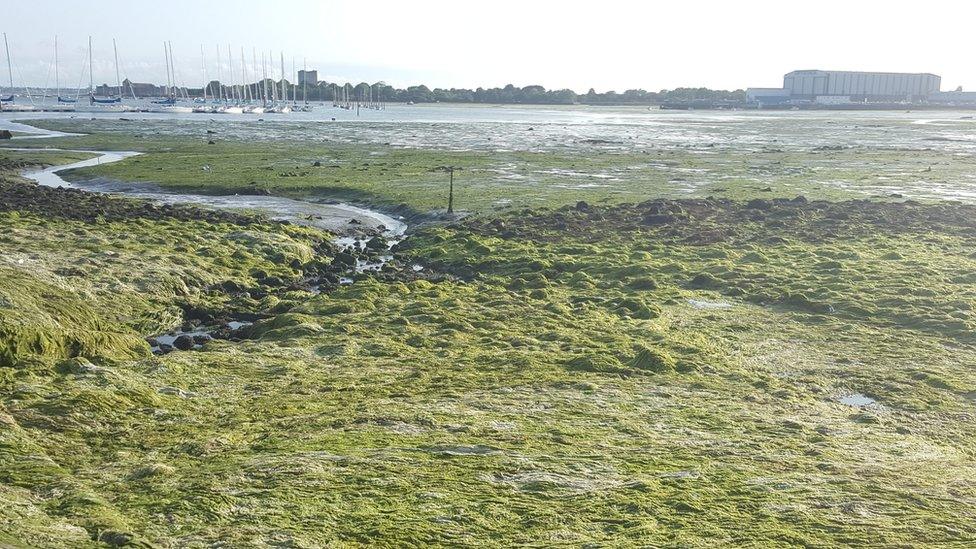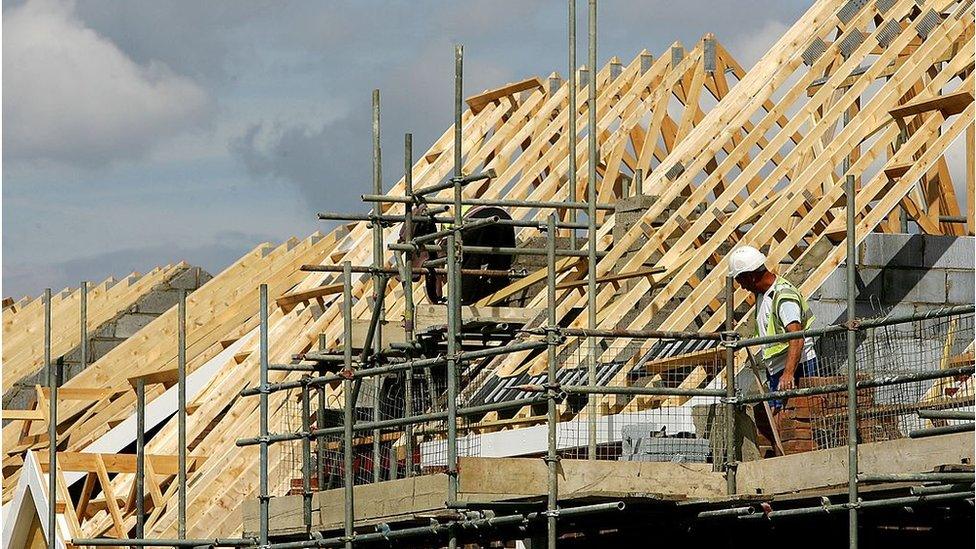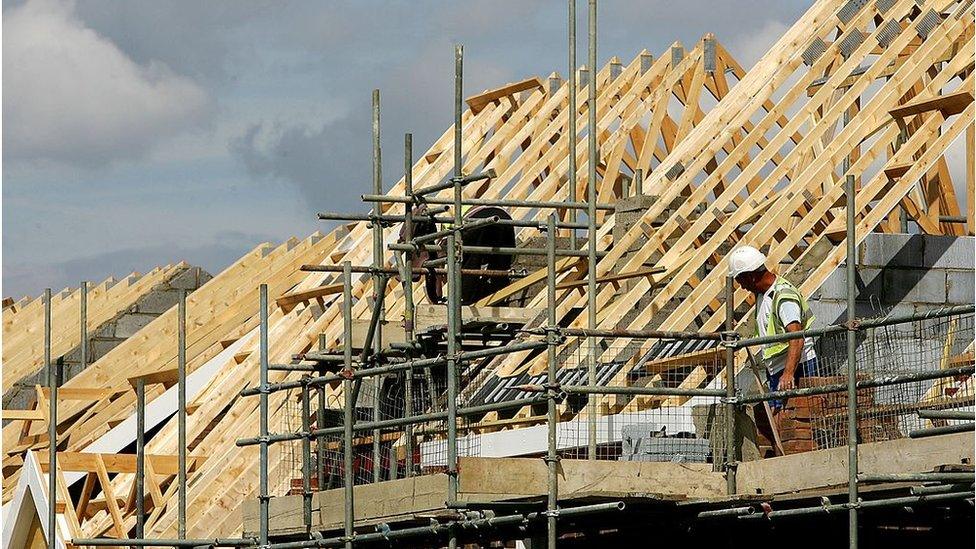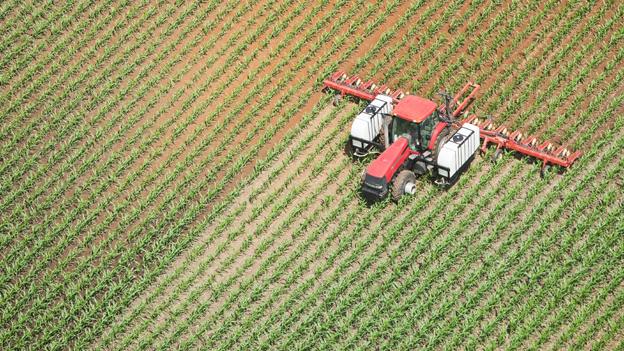Solent nitrates: 'More than 10,000' new homes delayed
- Published

Natural England said high levels of nitrogen pollution were affecting the Solent area
An environmental restriction on housebuilding has so far delayed more than 10,000 new homes, a council group has said.
The Partnership for South Hampshire (PfSH) said developments in Portsmouth and Southampton were among those on hold because of nitrate pollution.
Natural England advised some councils in 2019 to refuse housing schemes which were not "nitrate neutral".
PfSH said it was "utterly crazy" that the issue had still not been resolved.

PfSH chairman Sean Woodward said he would be meeting the secretary of state for housing
Nitrogen has been causing dense algae growth in the Solent, affecting protected habitats and bird species.
The government body said: "It is Natural England's view that there is a likely significant effect due to the increase in wastewater from the new developments coming forward."
Natural England said its advice to councils followed European Court rulings in 2018.

Five councils said some developments were on hold
PfSH chairman Sean Woodward said planning permission for more than 10,000 new homes had been held up since the advice was first issued in April 2019.
Mr Woodward said affected areas included Fareham, Gosport, Portsmouth, Southampton and Winchester.
He said: "It's an utterly crazy situation. Councils have to do what Natural England tells them or face judicial review."
Mr Woodward said he would be meeting the secretary of state for housing, communities and local government "before too long" to discuss a way forward.
Winchester developer Robert Carter of Millgate said: "It's frustrating. We need the local leaders to come together to form a solution."
He said he had been advised to ask farmers to take land out of production in order to offset nitrates from developments.
Previously Portsmouth City Council said it was considering introducing oyster beds to resolve the issue, saying the oysters would feed on harmful algae and store nitrogen in their shells and tissue.
- Published3 September 2019

- Published15 August 2019

- Published14 June 2019

- Published10 November 2017
